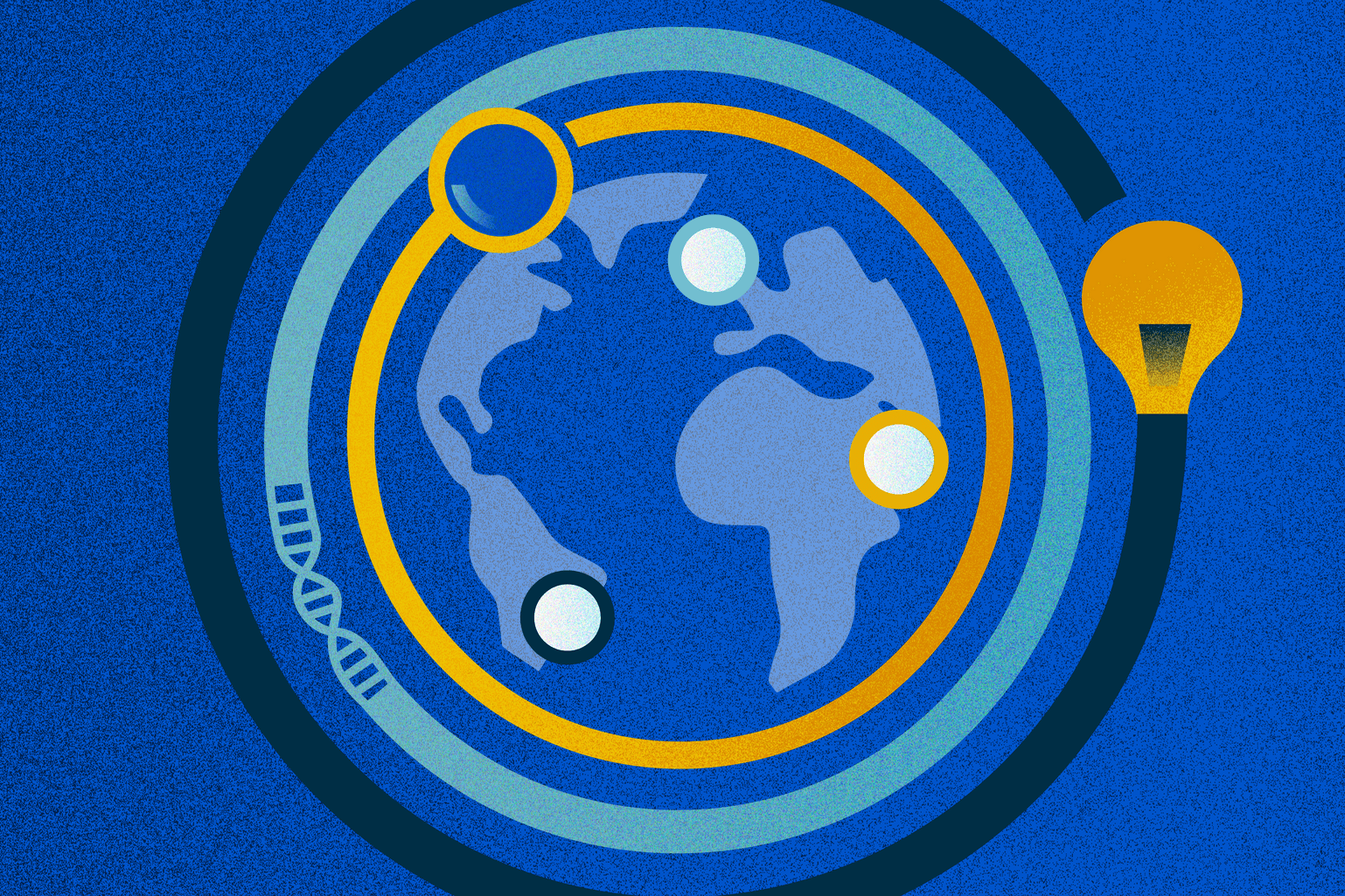
What we do and don’t fund in discovery research
Get information on the types of research that Wellcome funds in Discovery Research, including who we fund and what we don't fund.
In 2022, Wellcome changed the way we fund discovery research to support a broader range of researchers and disciplines from across the globe, including in low- and middle-income countries. Learn more about why and read examples of research we’ve funded so far.


Research Manager (2021 - 2023), Wellcome

Senior Manager, Clinical, Wellcome

Research Manager (2021 - 2023), Wellcome

Senior Manager, Clinical, Wellcome
In July and August 2023 we ran a series of webinars on how we support research in low- and middle-income countries.
The recordings of the webinars are available in a number of languages.
As a global funder, we are fortunate to work with a strong and diverse network of international researchers. But we know that to make a significant impact, we need to become a more inclusive and global funder with a portfolio that better represents the international research landscape.
In the Discovery Research team, we are aiming to do just that.
Supporting high-quality discovery research in low- and middle-income countries (as defined by the OECD) enables us to build a portfolio addressing research questions that are best led in those countries, as well as research focusing on diseases of global, regional or local importance. In addition, research in these countries is essential to better identify future questions, set agendas and ensure greater impact.
We recently celebrated the first year of our new Discovery Research funding schemes, having completed three rounds of our new Early Career Awards, Career Development Awards and Discovery Awards. We hoped our new schemes would encourage applications from a breadth of disciplines and that our funding would reach diverse people and places, including researchers undertaking high-quality discovery research across global settings.
We can report that we have awarded over £20mn of funding for people and research led in low- and middle-income countries in the past year, supporting an exciting breadth of discovery research that could lead to significant advances in our understanding of health, life and wellbeing.
Our new awardees include researchers from Brazil, Cameroon, Ethiopia, Ghana, Kenya, South Africa and Uganda. Among them are researchers tackling questions as diverse as ‘what are the molecular mechanisms driving adaptations to climate change and insecticide resistance in malaria?’ and ‘what does solidarity mean when it comes to global health?’.
Here are some of the discovery research projects we are supporting.
We’re supporting Dr Simon Kigozi from Makerere University, who will be evaluating a routine health surveillance system and integrating its information with other databases to see if malaria control can be better targeted to optimise impact of existing effective control tools. This is vital in Uganda and other countries where budgets for public health systems are relatively low.
We’re funding Ms Marina Carpena, an early career researcher at the Federal University of Pelotas (UFPel)/Associação Brasileira de Saúde Coletiva (ABRASCO, Brazil) to investigate the associations between sleep and mental health throughout development. Using a cohort of young people born around the same time, the research will look for the genetic associations between sleep problems and poor mental health, and determine whether stress and adversity in early life affect sleep or mental health outcomes. This research will increase our understanding of causality in sleep-mental health associations and identify whether there are critical periods during development where interventions may improve mental health outcomes.
We are funding Dr Sulaiman Sadi Ibrahim, a molecular entomologist from Bayero University, Kano, in Nigeria, to lead a team of researchers to investigate the molecular mechanisms driving adaptations to climate change in African malaria vectors; how the mechanisms impact the efficacy of major malaria control measures, for example, insecticide-treated bed nets; and how it can be exploited for the control of the malaria mosquitoes in the future warmer world.
We support innovations that might transform understandings of health and its social and political contexts. That’s why we’re funding Dr Victor Alegana from the Kemri-Wellcome Trust Research Programme to develop new statistical approaches that measure children’s access to healthcare in Kenya. Understanding the extent of health issues such as childhood fever is often based on hospital data, which does not take into account variations in access to care. Including healthcare access will improve the data and make the management, prevention and control of conditions like fever more effective.
We’re funding Professor Caesar Atuire, a philosopher and ethicist at the University of Ghana, to lead a global team exploring how our understanding of global health might be different if viewed through a lens of solidarity, especially as conceptualised and practiced among marginalised groups and communities. Despite appeals for solidarity during the Covid-19 pandemic, equity was lacking in the allocation of resources. This research could improve the theory and practice of global health by generating a richer understanding and effective tools for measuring and implementing solidarity in global health. Ultimately, the challenge is how to actualise the goal of leaving no one behind.
We’re funding Professor Jewkes, an Executive Scientist at the South African Medical Research Council and public health researcher at the intersections of gender inequity, gender-based violence and health, to lead a research programme on severe intimate partner violence and femicide. Severe intimate partner violence has an enduring impact on affected women and children: for some, it is fatal, and among exposed children, it fuels intergenerational cycles of violence. South Africa has one of the highest rates of intimate partner femicide globally and large numbers of children are exposed annually. This ground-breaking study aims to understand the pathways and mechanisms of impact of severe intimate partner violence on the social and economic circumstances, relationships and health of affected women and their children. With a special focus on risk factors for intimate partner femicide and the processes of intergenerational cycling of violence and will reveal new insights that may ultimately inform prevention strategies and better support and care for victims.
"The greatest thrill of directing Discovery Research at Wellcome is learning about the breadth of creative ideas from the global research community – ideas which will change how we understand the world to better prevent, treat and diagnose disease and improve health for all.
But to do so, our funding must be able to reach the research excellence that resides in low- and middle-income countries, which is why we in Discovery Research are committed to growing our funding in these settings and reaffirming Wellcome’s long-standing aim to shift the centre of gravity of research.”
We don’t know where new, transformative ideas will come from and we recognise that discovery research might look different in diverse settings, so our remit is intentionally broad. We are looking to grow and diversify Wellcome's Discovery Research portfolio and our funding schemes are a real opportunity to do this – to the benefit of research everywhere.

Get information on the types of research that Wellcome funds in Discovery Research, including who we fund and what we don't fund.
We recognise that there’s always more we can do to promote diversity of people, places, topics and disciplines within our portfolio and to understand the potential barriers that researchers in different settings may face. We hope to see a greater number of applications and researchers funded based in low- and middle-income countries in future rounds of our funding schemes. We will provide updates on the development of our Discovery Research funding schemes here on wellcome.org.